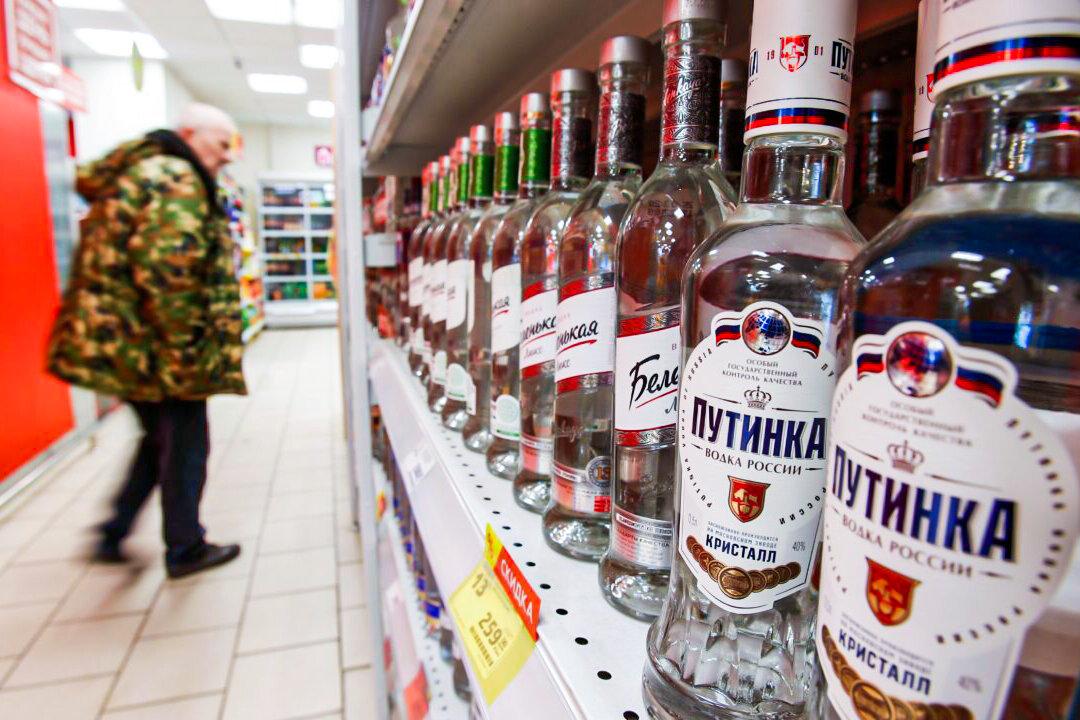An international boycott of Russian vodka is slowly forming across the globe from the United States to Australia in opposition to President Vladimir Putin’s invasion of Ukraine.
The invasion—initially touted as a “special military operation” by Putin—triggered boycotts of Russian booze in the United States, with governors from the states of Texas, Utah, Ohio, Virginia, and New Hampshire calling on the state’s liquor and wine outlets to limit the sale of Russian products, including vodka.




